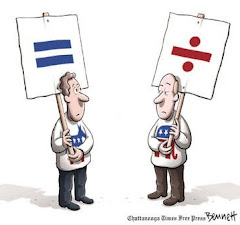 Looking at "luck"
Looking at "luck" I am not prepared to enter into the concept of luck, as it is vulgarly called: philosophically it is indefensible; in daily experience we see it to exist.Recently I took my graduate faculty advisor and his wife to dinner. This is not a bad thing to do once the dissertation is filed and the degree awarded . His wife arrived at the restaurant alone, explaining that her husband was trying to find a parking place. In a few minutes, his quest rewarded with success, the professor showed up and we took our seats. The first small-talk topic concerned one of my advisor's friends, who apparently has an uncanny knack for tracking down open parking spaces where less talented people would fail.
What is it about people who are "lucky"? I hold that the fundamental idea is meaningless. There is no such thing. To be sure, there are times when circumstances work out randomly in one's favor. Even if there is no such thing as luck per se, there will nevertheless be some who will have a greater number of happy outcomes than some others. It may be that a form of luck accrues to those who are better prepared to take advantage of situations as they arise, but I regard this as the mere appearance of luck. It is actually the consequence of superior faculties, either innate or acquired. I took my opening quote from The Mauritius Command by Patrick O'Brian, a passage in chapter six wherein Dr. Maturin explains his optimism concerning an impending venture by observing that Commodore Aubrey has amply earned his nickname of "Lucky Jack." However, Aubrey's purported luck is at least as much the result of his superior skills as it is the product of happenstance.
As for the professor's friend with the preternatural talent for finding parking spaces, could this be a talent? To a degree, I think it might be. Some folks could be more attuned to the ebb and flow of traffic, have a sharper eye for the vacant or newly opening space. Talent could certainly play a role. Another important factor might be our tendency to filter data. After all, simple random chance will fortuitously elevate some individuals above their competitors in ventures that are based on probability rather than skill. Once a person gets a reputation for being lucky in some endeavor, future good outcomes will be remembered as confirming instances of his lucky nature and bad outcomes will be disregarded as exceptions to the rule. Once the filter is in place, the individual's reputation will be robust and quite difficult to dislodge.
What about Teela Brown? She is one of Larry Niven's less successful creations in his many tales of Ringworld. Teela is born on a future overpopulated Earth where the right to bear children is subject to a lottery with very long odds. She is the product of several consecutive generations of winners in the birth lottery, so she is bred for good luck. When I read Niven's Ringworld novels, the introduction of Teela caused me to roll my eyes. We are all—each and every one of us—winners of the world's longest running birth lottery ever. If the recurrent mad sperm races have not bred shockingly good fortune into the human race, adding the artificial level of a formal birth lottery is not suddenly going to breed a race of the super lucky.
Larry Niven, by the way, was not especially lucky when he dreamed up Teela Brown. She was a difficult character to handle, especially when the author wanted to build suspense. By definition, things were going to work out for Teela. I guess she never lacked for a parking space.













